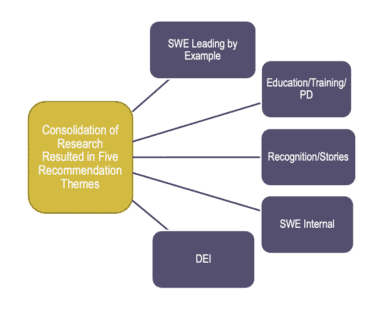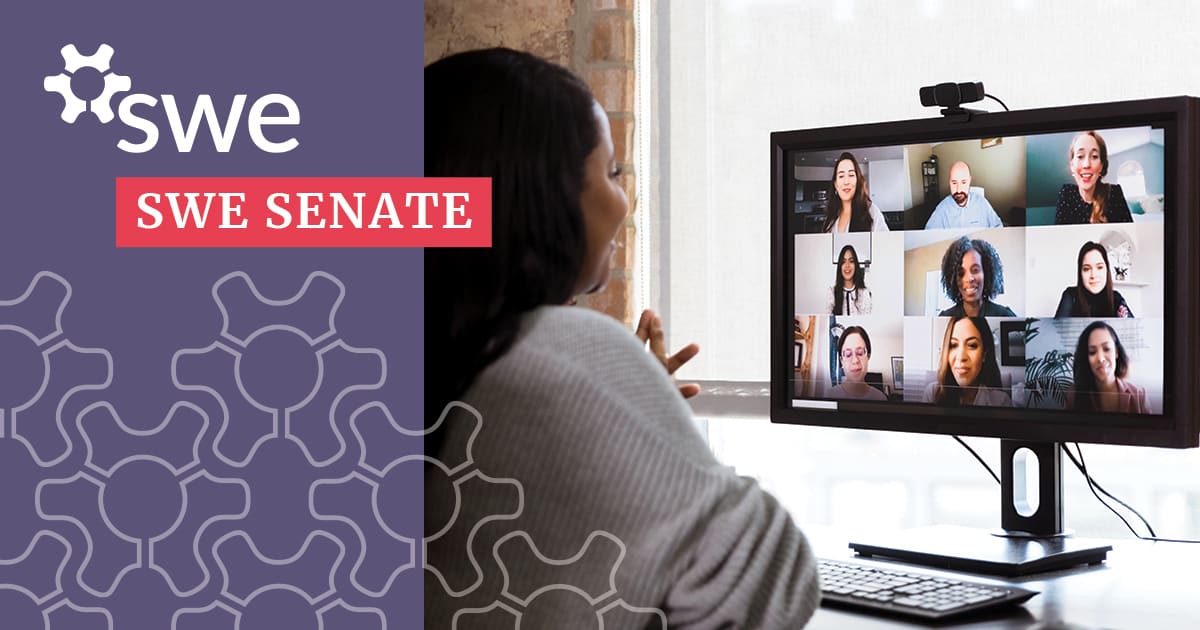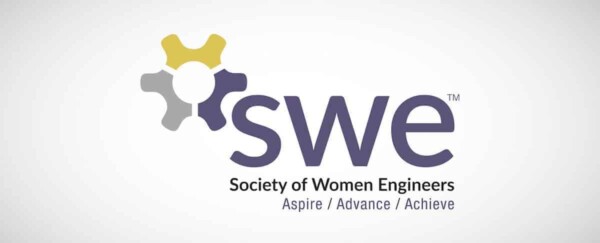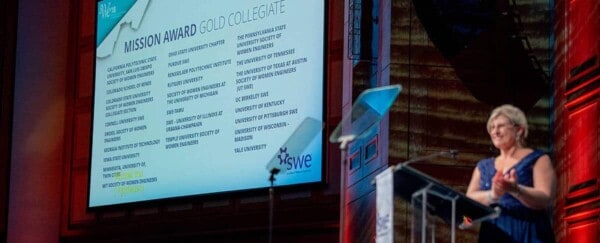In the second half of FY21, the Changing Work Sub-Team has been collecting and analyzing answers to the four research questions shared in the last blog post. A unifying conclusion we have arrived at across these questions is that – everyone is impacted by changing work. Inevitably every worker will they themselves be, or have team members, managers, etc. that will be working remote or hybrid. This is true with increased globalization as our workforce also becomes increasingly distributed. A hybrid work model refers to working remotely (from home or elsewhere) part of the time and the rest of the time is in person at the office (during specified days or as necessary). This diversity of workplace environment will bring a new set of challenges for us all to navigate, such as distance and recency biases [1], but especially for managers and corporate leaders [2]. All will need to adapt to be productive as well as feel social cohesion or a sense of community at work.
But this was not our only finding. Recall that we tasked ourselves with understanding the impact of changing workforce and workplace from two angles – organization and member – with two questions for each angle. We identified multiple findings, that when synthesized resulted in 22 recommendations. The following sources of information were consulted when researching answers to the four questions, with a summary of findings in the following paragraphs.
- Literature (list of research papers, reports, studies and news articles included at the end)
- Existing SWE Research
- WE20 sessions
- Communication with SWE Affinity Group Leaders
- CPC member survey
- Informal collegiate survey
- Practices and policies at sub-team members’ companies
- Webinars on hybrid work
- Personal stories of sub-team members
When considering, How do organizations like SWE impact organizational culture through supporting relationship building, accessibility and globalization?, we learned that SWE has an impact on workplace culture, and is seen as a thought leader in this area. However, SWE has the opportunity to have a greater impact on shaping organizational culture in two main ways: 1) through members taking “grassroots” actions such as bringing best practices and ideas from SWE to their organizations; and 2) through influencing senior leaders of organizations by providing networking opportunities and direct experiences with SWE that they take back and use to shape their organization’s culture.
When considering, How can SWE be a thought leader on defining the workplace in the future to retain and attract women in STEM?, we learned SWE is a thought leader defining the future workplace to retain and attract women in STEM. Individual SWE members utilize SWE to develop their skills and confidence to prepare them for future developments as they navigate their career trajectories. Similarly, SWE’s CPC members come together to discuss future trends and needs of the corporations/industries represented, and SWE’s direction as it pertains to retaining and attracting women in STEM. SWE has an opportunity to leverage the current momentum of a changed workplace and empower individual members, CPC members, and other STEM organizations with the resources to thrive in an environment that will continue to change and depend on hybrid engagements.
When considering, How are women impacted by the changing workforce/place?, we learned that flexible working arrangements (i.e., flexible schedule, location, roles), which is very similar to what is now being called a hybrid work model, helps women to thrive in their careers. Companies that have embraced agile processes have also found that women thrive and advance into leadership roles, which are centered on communication and building positive relationships. And both of these are critical enablers of retaining women and increasing gender equity. Career advancement and growth for those working hybrid or fully remote may be more challenging as developing trusting relationships, finding sponsors, and remaining visible to a manager will take more effort than showing up to the office. When management fosters a strong team culture, sets expectations and values the voice of all employees — including remote employees — productivity increases. Managers will need to adapt to support the changing workplace and workforce to prevent the “broken rung” from progressing. Working remotely can lead to burnout or fatigue, however, companies that address physical and mental health challenges faced by their remote workers have a higher retention rate. Upskilling soft and digital skills will ensure employees are productive, collaborative and capable of managing their well-being.
When considering, How are STEM collegiates supported (or not) in their transition into the changing workforce?, we learned that early-career professionals would like to work hybrid and at the office. Also, they are comfortable with virtual onboarding and have multiple expectations for support. Formal mentoring, new hire buddies, scheduled networking, male ally training, and increased communication from management are all desired. Building a sense of belonging is important for retention, job performance and job satisfaction, which further underscores the importance of management in the hybrid work model.
Once the research was completed, recommendations were drafted for each research question. The sub-team then reviewed all the recommendations to identify overlaps, consolidated the list through synthesis, and then grouped the recommendations by themes. The recommendation themes that emerged across the research questions span all four society strategic objectives and are explained below. Our sub-team views the first two themes as the highest priority recommendations, the last theme as second priority, and the third and fourth themes as third priority.

- SWE Leading by Example – These recommendations focus on SWE being a champion of hybrid work models and increasing the depth and reach of SWE research. Opportunities include creating research-based resources and best practices in support of hybrid work models that can guide CPC partners (and beyond), an organizational culture study in the context of hybrid/remote work environments, and leading partners to engage in sponsorship relationships. Leading by example will ensure a future outlook is maintained to monitor how the workforce and workplace continue to change so that SWE can stay ahead of and provide support for changes that are both coming and being experienced.
- Education/Training/PD – These recommendations focus on SWE providing learning opportunities to upskill or gain new skills needed for a hybrid work environment. There is a gap in SWE resources, training, and education that addresses the hybrid work model for all members as well as leading hybrid teams for managers. There is an opportunity to have greater impact on shaping organizational culture from the top down through influencing senior leaders of organizations, and from the bottom up through SWE leaders learning and using agile processes.
- SWE Internal – These recommendations focus on the society’s long-term commitment to the supporting members and CPC partners through changing work and globalization efforts. Opportunities include revising value statements, adding a strategic objective under the strategic goal of professionalism, starting an affinity group for leaders of hybrid teams, improving SWE’s organizational culture by learning about changing workplace and workforce from global members, and increasing advocacy as it pertains to changing workplace in the countries SWE has a presence.
- Diversity, Equity & Inclusion – These recommendations focus on allyship and equity in the workplace. Gaps include an increased focus on men as allies and understanding the D&I practices that SWE members bring to their workplace. Opportunities include facilitating workplace conversations about equity, updating SWE’s diversity principles to include workplace environment (i.e., hybrid, remote) as a form of diversity, and conference badge ribbons for leaders of hybrid teams.
- Recognition/Stories – These recommendations focus on bringing recognition to SWE members and partners as well as sharing positive change by members through storytelling. Opportunities include recognizing leadership and inclusivity in a hybrid work environment, understand how SWE has impacted member career advancement and sharing stories of collegiate members, professional members and partners in the context of changing workplace (including institutions of higher education) and workforce.
The future of workforce and workplace will involve more people in a hybrid or fully remote working situation. Support of hybrid work benefits the quality of life for all workers and helps attract and retain a diverse workforce. There are many opportunities for SWE to be an advocate for workplace environment diversity, working hybrid or fully remote, and to educate others on the value of these work models. SWE is a model organization that advances women in their careers and is uniquely positioned to advocate for and lead change regarding the workplace and workforce. Our sub-team is making these recommendations to help SWE remain a thought leader as well as align SWE’s business model and value proposition with the changing needs of our members as their work, the workforce, and the workplace change.
I would like to thank the sub-team members for their tremendous effort this year in exploring a wide-open topic and arriving at multiple strategic recommendations that can make a positive and lasting impact on members. The sub-team would like to thank Jen Scott for assisting with our participation in the CPC survey, Roberta Rincon for providing us with resources to review, and Dayna Johnson for being an outstanding advisor and mentor.
The FY21 Changing Work Sub-team members are: Jacquelyn K. Nagel (lead), Megan Schulze (vice lead), Kaitlyn Bunker, Alya Elhawary, Kris Acosta, Marta Wicke, Erica Messinger, and Dayna Johnson (Board Advisor)
Article References:
- IDEO U (2021) “The Future of Work is Hybrid: Here’s How to Thrive in the New Normal.” URL: https://www.ideou.com/blogs/inspiration/the-future-of-work-is-hybrid
- Lufkin, B. (2021) Why presenteeism wins out over productivity. BBC Worklife. URL: https://www.bbc.com/worklife/article/20210604-why-presenteeism-always-wins-out-over-productivity
Bibliography of Literature Sources:
- Abbott, K., Mohapatra, A. (2019) How Business Can Build a ‘Future of Work’ That Works for Women. BSR. URL: https://www.bsr.org/en/our-insights/report-view/future-of-work-womens-economic-empowerment
- Aksekili A.Y., Stettina C.J. (2021) Women in Agile: The Impact of Organizational Support for Women’s Advancement on Teamwork Quality and Performance in Agile Software Development Teams. In: Przybyłek A., Miler J., Poth A., Riel A. (eds) Lean and Agile Software Development. LASD 2021. Lecture Notes in Business Information Processing, vol 408. Springer, Cham. https://doi.org/10.1007/978-3-030-67084-9_1
- BBC (2020) Coronavirus: How the world of work may change forever. BBC Worklife. URL: https://www.bbc.com/worklife/article/20201023-coronavirus-how-will-the-pandemic-change-the-way-we-work
- Brzozowski, C. (2019) Remote Employees: Out of Sight, Out of Their Minds? Workforce. URL – https://www.workforce.com/news/remote-employees-out-of-sight-out-of-their-minds
- (2021) Future of Work. Catalyst. URL: https://www.catalyst.org/topics/future-of-work/
- Cheremond, R.J. (2019) 6 Ways the Workplace Will Change in the Next 10 Years. Gartner. URL: https://www.gartner.com/smarterwithgartner/6-ways-the-workplace-will-change-in-the-next-10-years/
- Coury, S., Huang, J., Kumar, A., Prince, S., Kirvkovich, A., Yee, L. (2020) Women in the Workplace 2020. McKinsey & Company. URL: https://www.mckinsey.com/featured-insights/diversity-and-inclusion/women-in-the-workplace
- Gallup (2021) The Real Future of Work. URL: https://www.gallup.com/workplace/232382/real-future-work.aspx
- Gewirtz, C., & Giardine, F., & Ott, R., & Kary, A. (2020, June), Women’s Unique Challenges in the Transitions to Engineering WorkPaper presented at 2020 ASEE Virtual Annual Conference Content Access, Virtual On line . 10.18260/1-2–35588
- Guy, Sandra (2021) Examining the impacts of COVID-19 on the engineering pipeline. SWE State of Women in Engineering 2021. SWE.
- Kropp,B., Cambon, A., Clarck, S. (2021) What Does It Mean to Be a Manager Today? Harvard Business Review. URL: https://hbr.org/2021/04/what-does-it-mean-to-be-a-manager-today?
- Lanik, M., Rupp, D.E., Brown, M., Kim, Y.-J., Strah, N. (2019) Repairing the Broken Rung. Pinsight. URL: https://www.pinsight.com/lp/repairing-the-broken-rung-overcoming-bias-in-the-leadership-pipeline/
- Lopez, Maria, Dosik, D., Troughton, R., Close, K., Baily, A. (2020) Women are the X-factor in New Ways of Working. Boston Consulting Group. URL: https://www.bcg.com/en-us/publications/2020/women-are-the-x-factor-in-new-ways-of-working
- Madgavkar, A., Manyika, J., Krishnan, M., Ellingrud, K., Yee, L., Woetzel, J., Chui, M., Hunt, V., Balakrishnan, S. (2019) Future of Women at Work: Transitions in the Age of Automation. McKinsey & Company. URL: https://www.mckinsey.com/featured-insights/gender-equality/the-future-of-women-at-work-transitions-in-the-age-of-automation
- National Academies of Sciences, Engineering, and Medicine (2021). Impact of COVID-19 on the Careers of Women in Academic Sciences, Engineering, and Medicine. Washington, D.C.: The National Academies Press.
- National Academies of Sciences, Engineering, and Medicine (2020) Promising Practices for Addressing the Underrepresentation of Women in Science, Engineering, and Medicine: Opening Doors. Washington, DC: The National Academies Press. https://doi.org/10.17226/25585.
- Neal, A. (2020). Remote Work May Be Helping Women Overcome Traditional Office Barriers. URL: https://www.workforce.com/news/remote-work-may-be-helping-women-overcome-traditional-office-barriers
- Nguyen, U. (2020) Does Remote Work Bring About Gender Equality? SWE All Together Blog. URL: https://alltogether.swe.org/2020/07/does-remote-work-bring-gender-equality
- Oats, R., Woon. N. (2021) Building Belonging Across (Virtual) Borders. SWE Magazine Winter 2021.
- Reisfeld, J. (2020) COVID-19: Game Changer for the World of Work. SWE Magazine Fall 2020.
- Rincon, R. (2021) SWE COVID-19 Research in the US. SWE Research. URL:https://research.swe.org/2020/09/covid-19-research/
- Rincon, R.M., Yates, N. (2018) Women of Color in the Engineering Workplace: Early career aspirations, challenges, and success strategies. SWE Research. URL: https://alltogether.swe.org/wp-content/uploads/2018/02/Women-of-Color-in-the-Engineering-Workplace.pdf
- Sanders, M., Zeng, J., Hellicar, M., & Fagg, K. (2015). The power of flexibility: A key enabler to boost gender parity and employee engagement. Bain & Company. URL: https://www.bain.com/insights/the-power-of-flexibility/
- Schawbel, D. (2020) How to onboard employees from a distance during a pandemic. LinkedIn. URL:https://www.linkedin.com/pulse/how-onboard-employees-from-distance-during-pandemic-dan-schawbel/
- Society of Women Engineers (2016) Society of Women Engineers’ National Gender Culture Study. SWE Research. URL: https://swe.org/research/2018/swe-gender-culture-study/
- Weilemann, E., Brune, P.: Less distress with a scrum mistress? On the impact of females in agile software development teams. In: Proceedings of the ASWEC 2015 24th Australasian Software Engineering Conference, pp. 3–7 (2015)
- Wittenberg-Cox, A. (2020) How Companies Can Meet the Needs of a Changing Workforce. URL: https://hbr.org/2020/12/how-companies-can-meet-the-needs-of-a-changing-workforce
- Women in Agile (2021) URL: https://womeninagile.org
More articles from the SWE Senate:
- SWE Senate RISE Sub-Team Findings and Recommendations
- SWE Senate Society Bylaws Streamlining Sub-Team Findings and Recommendations
- SWE Senate Strategic Planning Sub-Team Findings and Recommendations
- SWE Senate Series: Get to Know the Changing Work Sub-Team
- SWE Senate Series: Get to Know the Society Bylaws Streamlining Sub-Team
- SWE Senate Series: Get to Know the RISE Sub-Team
- SWE Senate Series: Get to Know the Strategic Planning Sub-Team
Author
-

Jacquelyn K. Nagel, Ph.D. is a an FY19-21 Senator and a Life Member of the Society. She has been a volunteer leader in various levels of SWE governance for over 17 years, initially as a collegiate member and now as a professional member. Jacquelyn is a tenured faculty member at the rank of Associate Professor and is the Assistant Department Head in the Department of Engineering at James Madison University. She is an internationally recognized expert for her research work in the areas of biologically inspired design process and pedagogy.






